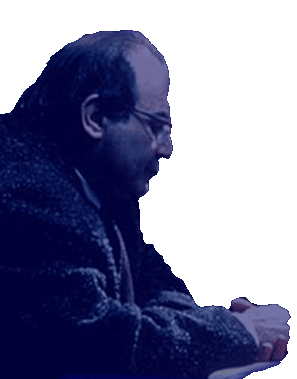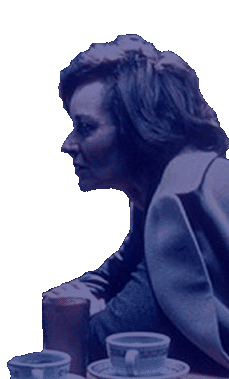|
The concept of "Sunday" began to take shape when Jonathan Nossiter, wine consultant and member of the Sommelier Society of America, met British poet James Lasdun. Nossiter bought his collection of short stories, and one of them titled "Ate, Menos or The Miracle", a story about mistaken identity, excited his interest. It revolves around a young British theater director and an older woman who mistakes him for someone else and then spends the day in bed with him. The case of mistaken identity is the only thing that remains of Lasdun's original story.
Nossiter sent Lasdun seven pages about how he wanted to transform this story into a film. Here is what Nossiter said about their first close meeting: "He felt extremely touched. Then he came here to my apartment and said, 'I think, your ideas are really stupid'. I wanted to throw him out at first, and then we ended up spending fourteen hours without actually moving. And he was right. He said, 'I'm going to throw my story away, if you throw your ideas away and we start together from scratch'". Nossiter and Lasdun worked on the script for a couple of years. They transformed the young theater director into a middle-aged homeless man, "resettled" the story from London to Queens, NY, invented a kind of no-man's-land.
It was a debut as script writers for both of them. Nossiter says about their collaboration: "We found a way of working together that felt very free and democratic. Our spirits coalesced. But James is a pure writer, a true writer, and I'm not. I'm not illiterate, but I have more of a talent as a director, to be able to work with a writer shaping a script. All the dialog that's really good is James'. But the shaping of the scenes and the characters, this is stuff we did together. Certainly for me, it's the greatest collaboration I've ever had, remarkably free of conflict. And because James is a poet, he's used to conceiving of the world in images, but also in terms of expressing things at their absolute essential level. It's sort of a weird combination, the idea that a poet could be a screenwriter. But actually, I think that a good a poet is predisposed to thinking in terms of cinema."
"Sunday" was filmed in five weeks, mostly in December, 1996, in Queens, NY. Being a very low-budget independent film, there were big financial problems. Funding ran out two weeks early so the producers had to scramble for the money to finish the film.
In January, 1997, "Sunday" was shown at the Sundance film festival in Park City, Utah. It was a kind of shock for Nossiter that the film got accepted because the tape he submitted was in very bad shape ("You couldn't make out half of what was in the film", he said.) The director had no money to enter a more professional cassette.
The result of the festival amazed most of its followers and competitors. Instead of choosing favorites such as "In the Company of Men", the jury awarded the Grand Jury Prize and the Waldo Screen Award to the unknown film by the first-time inexperienced director. "Sunday" also won the Grand Prize at the Deauville film festival (1998) and two special awards for the leading actors at the Istanbul international film festival. It was released on video only in America.
After the release of "Sunday," Nossiter's directing career took a turn. Right after his film debut he received accolades as a hot indie filmmaker. "Sunday" was highly acclaimed by many film critics as a fresh, smart and innovative piece. His second feature film "Signs and Wonders" wasn't so successful in America because this provocative psychological thriller bears anti-globalization and anti-American ideas.
Nossiter s predilection for truth-telling may always prevent him from being accepted by the mainstream. If "Sunday" had not won, it would likely never have been released because of its exploration of middle-age disillusionment and the breakdown of the American Dream, themes contrary to mainstream movie-making.
SOME INTERESTING FACTS ABOUT "SUNDAY"
-
David Suchet gained 49 pounds for the role because there was no opportunity to wear padding -- "Sunday" contains a couple of nude scenes. "His doctor told him this was not medically advisable," said Nossiter. "It's not as easy to lose weight when you're over 50." But Suchet was the filmmakers' first choice for the role ("I had no doubt he could do the accent"), and he wanted to play it enough to take the risk. "He responded to the script very strongly," said Nossiter. "I could see the depth and tenderness he could bring to it, without getting sentimental."
-
Jonathan Nossiter spent about nine years in Queens, taking photographs there. He always says in interviews that Queens was a kind of obsession for him, so his choice of the location wasn't accidental. Queens may be considered as one of the main "characters" of "Sunday".
-
Before filming, Nossiter and Lasdun spent a year and a half in Trinity Lutheran homeless shelter. Nossiter said about it: "James spent a couple of years in the shelter we shot it and I spent a year and a half there, and we built up relationships. James took notes, and I shot video after awhile. A lot of the film's characters and their dialogue is built out of what we saw and heard, which is quite journalistic in a way".
-
Two of the actors, Jimmy Broadway and Chen Tsun Kit, weren't actors at all. They played themselves. Chen Tsun Kit is real street singer. Jimmy Broadway's homeless shelter was this very shelter Nossiter and Lasdun have spent so much time
in.
-
No single melody was composed for "Sunday". The film's recordist David Ellinwood acted as a composer: "We spent a lot of time constructing the sound design. I told the sound recordist at the beginning of the shoot that he was going to be the composer of the film. It ended up being him and the sound editor. For the whole Oliver and the glasses business, we had 48 tracks at our disposal. And nine of them alone furnished the "bed" of Oliver's consciousness. Greek goat bells . . . we went out into the hall and bashed metal pipes against each other to create an echo effect that we then built back in the film . . . that's part of the fun of making a film", said Nossiter. Real sounds of street noises, voices, Greek goat bells, sound of radio and so on alternate with music -- classical music by Bach and Beethoven, opera, jazz, Jewish melodies... This odd soundtrack plays very significant role in the film: "We looked at the soundtrack as a total palette; we didn't feel restricted by what was the plausible sound. Because the film is very much about how people see themselves and see each other, and how distorting that lens is, how we deal with the world aurally is also a very conscious, subjective thing. And so we tried to construct each person's aural experience. There are a whole series of sounds that we picked out to describe Oliver's experience. Half the time you can't even hear them; they're almost
subliminal".
-
"Sunday" was so low-budget a film that most of the feature players were members of the crew and their relatives -- Gus Rogerson, Mr&Mrs Tom Madigan, Madeleine, Josh and Jason Nossiter, Violet Lasdun & Pia Davis (James Lasdun's wife) and so on. Even James Lasdun himself appeared in the episode in a restaurant, as a man reading a
newspaper.
-
Some of the most important moments in the film, such as twilight, were improvised by the
actors.
-
After every day of shooting Nossiter and his crew went back to his apartment to watch the dailies over a bottle of elite and expensive wines from Nossiter's
collection.
-
James Lasdun was on set most days. Nossiter explained it: "You should look at this as indicative of the spirit of the film. The sort of artificial lines and distinctions that people draw, this hierarchy of movie-making, should be crap. I mean, why should James's contribution as a writer stop when I'm on the set. Does a script stop having meaning? The point is that it was alive and breathing. And James would see things. I would see things. We would talk. We talk at the end of the day. We'd look at dailies. If James talked to the actors, rather than freak out, I was delighted - it meant one less conversation. (Laughs) If you want to make films, there should be a delight in communal activity".
|
|


